The study: Excise Duty Policy in the Baltic States - Alcoholic Beverages, Soft Drinks and Tobacco Products
New study “Excise Duty Policy in the Baltic States: Alcoholic Beverages, Soft Drinks and Tobacco Products” has been worked out by a group of authors - Anna Pļuta, Prof. Mihails Hazans, Irēna Emīlia Švilpe, Dr. Anna Zasova and Prof. Arnis Sauka. The study was commissioned by the Latvian Chamber of Commerce and Industry (LCCI).
The study was presented to public on 23 September, when SSE Riga hosted the 2nd national forum “Fight Against Smuggling: Challenges and Progress", and on 28 September, during the event organized by the Latvian Chamber of Commerce and Industry (LCCI).
“In order to remove incentives for cross-border shopping, it would be advisable to coordinate and harmonise excise duty rates between the Baltic States, as well as avoid radically increasing excise duty rates,” stressed Arnis Sauka, professor at SSE Riga and board member of the association BASE (“Business Against Shadow Economy”), who presented the study.
Sauka explained that the experience of European Union (EU) countries shows that raising the excise duty and the subsequent price increase incentivises consumers to engage in cross-border trade, purchase the product on the illicit market, or switch to cheaper substitutes.
“As a result, raising the excise duty rate might lead to a smaller decrease in consumption than originally planned, or even create and facilitate excessive consumption, as consumers build up product stocks by shopping in cross-border stores, which may facilitate excessive consumption and might induce a negative effect on the population’s health,” Sauka admits.
“If raising the tax is not accompanied by anti-smuggling measures, the impact on consumption caused by the introduction of the tax might have neutral or even negative effects on the state budget, while the actual consumption of the excisable goods would not decrease as a result,” Sauka explains.
The researcher points out the example of Lithuania as a valid illustration of the situation: in Lithuania, raising the excise duty on cigarettes turned out not to be viable, as instead of the expected 23 million euros, only 11 million additional euros were obtained in 2016; similarly, in 2017, instead of the expected 11 million euros, only 6 million additional euros were obtained in tax revenues. The illicit market in Lithuania reached 21.4% in 2019, with Lithuania ranking second in the EU.


